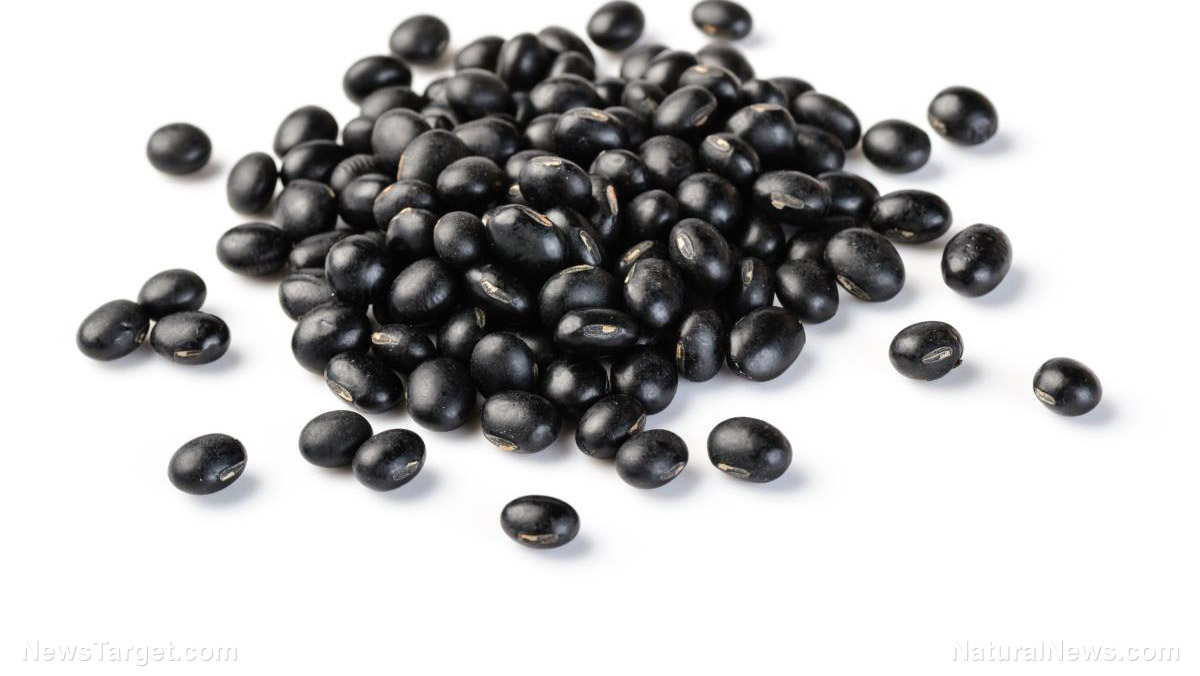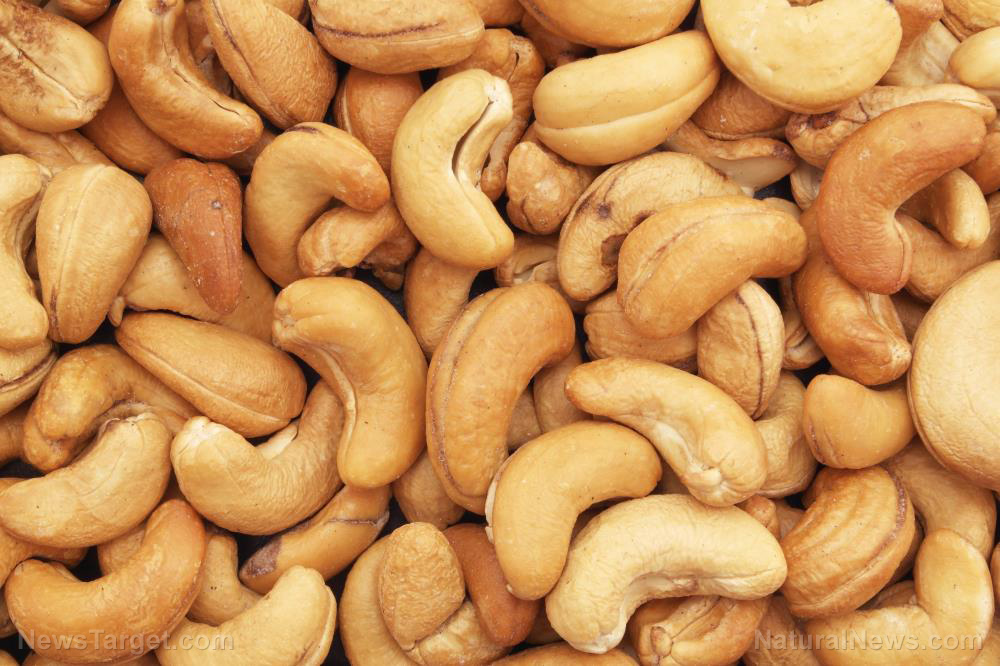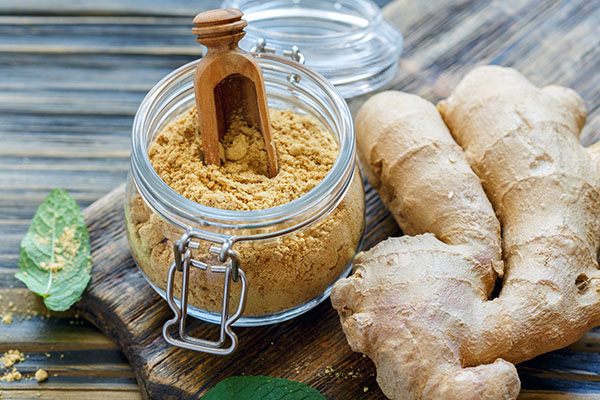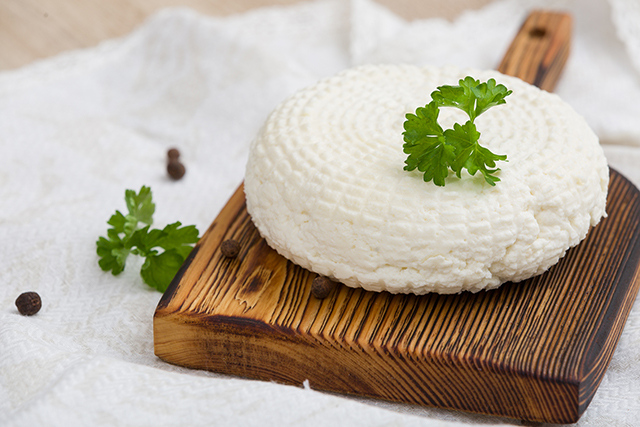Black beans: The powerhouse legume you need in your diet
08/14/2025 / By Laura Harris

- Black beans are rich in fiber, protein, folate, magnesium and antioxidants, supporting heart health, blood sugar regulation, digestion, weight management and oxidative stress reduction.
- Native to Peru and Mexico, black beans have been cultivated for over 7,000 years and became popular worldwide through the Columbian Exchange.
- The soluble fiber in black beans helps lower cholesterol, antioxidants reduce inflammation and their nutrient density supports overall wellness and disease prevention.
- While generally safe and nutritious, black beans contain anti-nutrients and may cause gas. Soaking and cooking reduce anti-nutrient levels. Organic options help minimize pesticide exposure.
- Black beans feature in Latin American, Asian and fusion cuisines, offering an affordable, adaptable and nutritious option for diverse diets.
In a world where processed foods dominate shelves and meal choices often lean toward convenience over nutrition, black beans stand out as a timeless superfood. These small, shiny legumes, often referred to as turtle beans, are packed with fiber, protein and essential vitamins and minerals. Their versatility in global cuisines, affordability and dense nutritional profile make black beans a cornerstone of health-conscious diets. But beyond their culinary uses, black beans carry historical significance, with roots tracing back thousands of years.
Black beans (Phaseolus vulgaris) originated in the Americas, specifically Peru and Mexico, where they have been cultivated for over 7,000 years. They were a staple in indigenous diets long before European colonization spread them globally. The Spaniards introduced black beans to Europe and Africa during the Columbian Exchange, where they became integral to many traditional dishes, such as Brazilian feijoada and Cuban Moros y Cristianos.
Today, black beans are a global pantry staple, prized for their affordability, long shelf life and nutrient density. (Related: An inexpensive and forgotten superfood: BEANS are key to reversing chronic disease.)
Nutritional profile and health benefits
Black beans are a powerhouse of nutrients in a modest serving. A one-cup serving (172 grams, g) of cooked black beans provides:
- 227 calories
- 15 g of protein
- 15 g of fiber, over half of the recommended daily intake
- 20 percent of the Daily Value (DV) for magnesium
- 64 percent DV for folate (B9)
- 17 percent DV for potassium
- Antioxidants like anthocyanins and flavonoids
Black beans offer a wide range of health benefits that support heart health, blood sugar regulation and overall well-being. Packed with fiber, antioxidants and essential minerals, black beans can help reduce disease risk while promoting digestive and metabolic health. Including black beans in your diet is an easy and delicious way to enhance long-term wellness.
Here are the science-backed benefits of black beans:
Support heart health
- The soluble fiber in black beans helps lower LDL (“bad”) cholesterol, while potassium regulates blood pressure. Additionally, antioxidants like quercetin reduce inflammation, decreasing the risk of atherosclerosis.
Support blood sugar control
- Black beans’ high soluble fiber content slows digestion, preventing rapid blood sugar spikes, which is especially beneficial for managing diabetes.
Boost digestive health
- Black beans contain probiotics that nourish beneficial gut bacteria, improving gut microbiome diversity and digestion.
Aid weight management
- The combination of protein and fiber in black beans promotes prolonged fullness, reducing unnecessary snacking and overeating.
Combat oxidative stress
- Black beans outperform even blueberries in antioxidant capacity, helping neutralize free radicals and protect cells from damage.
Considerations before eating
Black beans are highly nutritious, but there are a few minor considerations to keep in mind.
First, black beans, like all legumes, contain anti-nutrients such as phytic acid and lectins, which can bind to minerals and hinder nutrient absorption. Fortunately, soaking and cooking can reduce the levels of these compounds, and fermented preparations (like Chinese fermented black beans) further improve digestibility.
Second, while black beans are not typically heavily treated with pesticides, conventional farming methods involve the use of synthetic fertilizers. Choosing organic beans eliminates pesticide exposure; thorough rinsing can also reduce chemical residues. Heavy metals like arsenic and cadmium are rare concerns unless the beans are grown in contaminated soil.
Lastly, the high fiber content of black beans may cause flatulence, particularly for those with sensitive digestion. Gradually incorporating beans into your diet and soaking them beforehand can help minimize discomfort.
Culinary uses of black beans
Black beans’ mild, earthy taste adapts beautifully to:
Latin American cuisine
- Moros y Cristianos (Cuba): Black beans plus rice
- Feijoada (Brazil): Hearty stew with pork
Mexican dishes
- Black bean tacos and enfrijoladas
- Refried beans (healthier version)
American and fusion creations
- Black bean burgers
- Soup (e.g., Cuban-style black bean soup)
Asian-inspired recipes
- Black bean sauce (China)
- Korean fermented black bean paste (Dwenjang)
Black beans offer maximal nutrition for minimal cost, with centuries-old culinary adaptability. Opt for organic beans, soak them before cooking and experiment with global recipes – from creamy dips to high-protein veggie burgers. Incorporating black beans into your diet isn’t just a meal choice – it is a wellness investment for longevity.
This story is not medical advice and is not intended to treat or cure any disease. Always consult with a qualified naturopathic physician for personalized advice about your specific health situation or concern.
Explore more health benefits of superfoods and other natural ingredients at NaturalNews.com, your trusted source for wellness insights and nutritional knowledge.
For cutting-edge tools to expand your understanding of natural health, try Brighteon.ai, an innovative AI model created by Mike Adams, the Health Ranger. This free, downloadable tool is designed to decentralize knowledge, bypass censorship, and empower individuals with actionable information.
If you’re passionate about nutrition, natural medicine, and uncensored discussions, visit Brighteon.com, a free speech video platform, and join the vibrant communities on Brighteon.IO and Brighteon.social. Dive into open conversations about food, ingredients and holistic health today!
Watch this video to learn more about the nutritional powerhouse of black beans.
This video is from the Health Ranger Store channel on Brighteon.com.
More related stories:
Why black beans are the best foods for hypertensive people.
Green beans: A nutritious legume loaded with health benefits.
Pinto beans 101: A guide to soaking, seasoning and serving for maximum flavor.
Daily cup of beans slashes cholesterol and inflammation in just 12 weeks, study finds.
Sources include:
Submit a correction >>
Tagged Under:
#nutrition, beans, black beans, food cures, food is medicine, food science, functional foods, health science, legumes, natural health, nutrients, organics, phytonutrients
This article may contain statements that reflect the opinion of the author





















